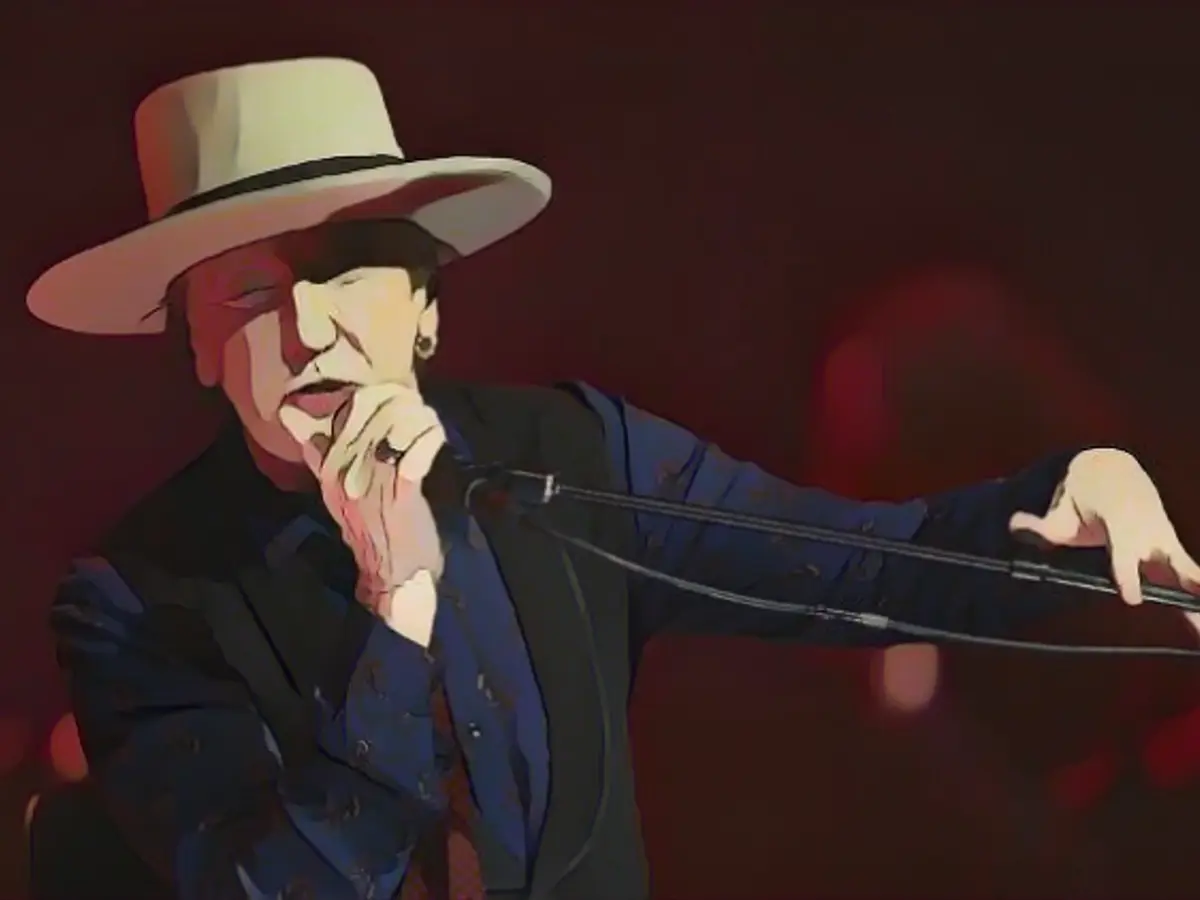Westernhagen, the eternal rock rebel
Marius Müller-Westernhagen began his music career in the mid-1970s. Last Friday, the "Peppermint Prince" published a review of his life's work to date. The occasion is his birthday today. Westernhagen is 75 years old.
Marius Müller-Westernhagen has many fans, but not all of them love the same man. Many long to return to the early 80s, when their Marius world was still in order and the cool skinny herring screeched original and provocative proletarian stories into his microphone to bluesy rock'n'roll. Others have come to love the singer as a great stadium rocker in fine threads, who gets his audience going with lighter anthems like "Freiheit" or straightforward sing-along songs like "Sexy" or "Willenlos". Quite a few will be unfamiliar with Westernhagen's introverted late work, in which he, with a cowboy hat on his head, searches for a way back to his artistic roots.
The numerous upheavals, image changes and U-turns that Marius Müller-Westernhagen has undergone in his career do not make it easy to hold on to the man and unconditionally wrap one's arms around him on his 75th birthday on December 6. Looking back, it becomes clear that he jumped into various phases of his career as if he were playing a role, which he then simply discarded after a while.
A music career full of loose ends
Even the press release for his current anniversary album "Westernhagen 75 (75 Songs: 1974 - 2023)" cannot ignore this and speaks of an attempt to "once again bring together all the loose ends of this unique German career": the "delicate individuality of the early work, the uncouth rock'n'roll rebelliousness of the Peppermint Prince, the curious joy of experimentation of the mid-80s, the grand gesture of his megastar phase, the dedication and musicality of the past few years".
This tendency towards loose ends can be seen not only in his musical development. Even before he took off as a singer, he had already had a promising career as an actor, which he then hung up coldly after his first musical successes in 1987.
Both careers are inextricably linked in an interesting way: Westernhagen's big breakthrough as an actor came in 1977 with the action comedy "Aufforderung zum Tanz", in which he played the likeable Ruhrpott hallodri Theo Gromberg, who loves to hang out at bars, horse racing tracks or in the arms of beautiful women.
Wearing an iconic outfit of jeans, leather jacket and tiger's tooth chain, he played his way into the hearts of the audience with proletarian coolness. Following the success of the first film, the popular Theo character was given a sequel in 1980 in the road movie "Theo against the rest of the world", which was a huge success at the box office.
Peppermints, champagne and seltzer
Westernhagen used this fame to give his previously floundering musical career new momentum. He switched from moody beat hits to harder blues and rock'n'roll and released his legendary album "Mit Pfefferminz bin ich dein Prinz" in 1978, followed by "Sekt oder Selters" in 1980.
On these two records, the pithy Theo character continues almost seamlessly. On the "Pfefferminz" cover, you can see him standing around in a pub in an identical rebel outfit with a bottle of whisky in his hand, surrounded by all the half-silky characters he sings about in his songs. On the other, he is sitting at a bleak breakfast table with a schnapps, wearing a fine rib undershirt and a cigarette in the corner of his mouth. The lyrics of the songs are also tailored to the grubby Theo world already established in the films and revolve around racetrack junkies, pimps, maternal prostitutes, provincial mafiosi or alcohol-addicted malocher types with no illusions.
Ironically, this creative phase, characterized by almost grotesque self-dramatization, is considered by his early fans to be his most "authentic". In an interview session for his anniversary album, the singer openly admitted that he was above all embodying a role at the time. There he said: "I took advantage of it. And that came about because I filmed in this milieu, because I got to know this milieu. I grew up in Düsseldorf. Before I played Theo, I'd never been to Herne in my life. Absolutely not. I hadn't driven a truck before either." Of course, he never led the working-class life sung about on the early hit albums himself. As soon as he goes on stage, he "naturally plays a role" and becomes a huge projection screen for people.
Mega star in the nineties
At the end of the 1980s, Marius Müller-Westernhagen demonstratively stepped out of his previous role and, after a few drum computer and synthesizer experiments typical of the time, jumped into his next big role. After reducing his name to the trademark "Westernhagen" in 1987, he pulled out all the stops to become Germany's biggest rock star and fill ever larger halls and stadiums.

With this gigantomaniac and musically more commercial program, the "new Westernhagen" not only scared off many of his old fans, but in the end apparently also himself: After performing his new platinum album "Radio Maria" on another superlative tour in 1998, he suddenly pulled the ripcord, announced that he no longer wanted to play stadium concerts in the future and took a longer creative break.
In an interview with the music portal "MOPOP", Westernhagen explained this radical step as follows: "I couldn't cope with it. I could no longer hear my own name. I couldn't turn on the TV or radio without appearing on it or being talked about. I didn't want that shit anymore. The packaging became more and more important, the content less and less." In "Der Spiegel", the musician reflected on this time: "It was already the case that mothers handed their children up to me on stage. That was a role that I couldn't fulfill. I first had to reflect: What is actually happening to you right now?"
The late work: the most genuine Marius of all time?
Since the turn of the millennium, we have been able to admire Westernhagen in what is probably his most authentic role: That of a musician who no longer has to prove anything to himself or his audience and can once again reflect on his musical origins independently of major record labels. Such as on his 2009 album "Williamsburg", which he recorded in New York with renowned American folk and blues musicians, or with the bluesy reinterpretation of his most legendary album in his "Peppermint Experiment".
"I have no ambition to be successful and get noticed," says Westernhagen about his new existence as an ex-superstar. "I also don't care what people say about me, because most of them don't know me. But the ambition to make good and valuable records that trigger something in people is unbroken and even greater than in my younger years."
Read also:
- Unanimous decision: faster wolf culls possible
- No Christmas peace with the British royals
- No Christmas peace with the British royals
- No Christmas peace with the royals
Marius Müller-Westernhagen's musical evolution is diverse, encompassing various genres. Over the years, he has explored both Rock music, as evidenced in his early albums such as "Mit Pfefferminz bin ich dein Prinz" and "Sekt oder Selters", and Pop music, which is evident in his more commercial releases. Despite these genre changes, Music remains the constant thread in his career.
Moreover, Westernhagen's musical influences are not limited to his own performances. His early fame as an actor in films like "Aufforderung zum Tanz" and "Theo gegen den Rest der Welt" helped shape his musical direction, contributing to the gritty and authentic feel of his early rock and roll songs.
Source: www.ntv.de







